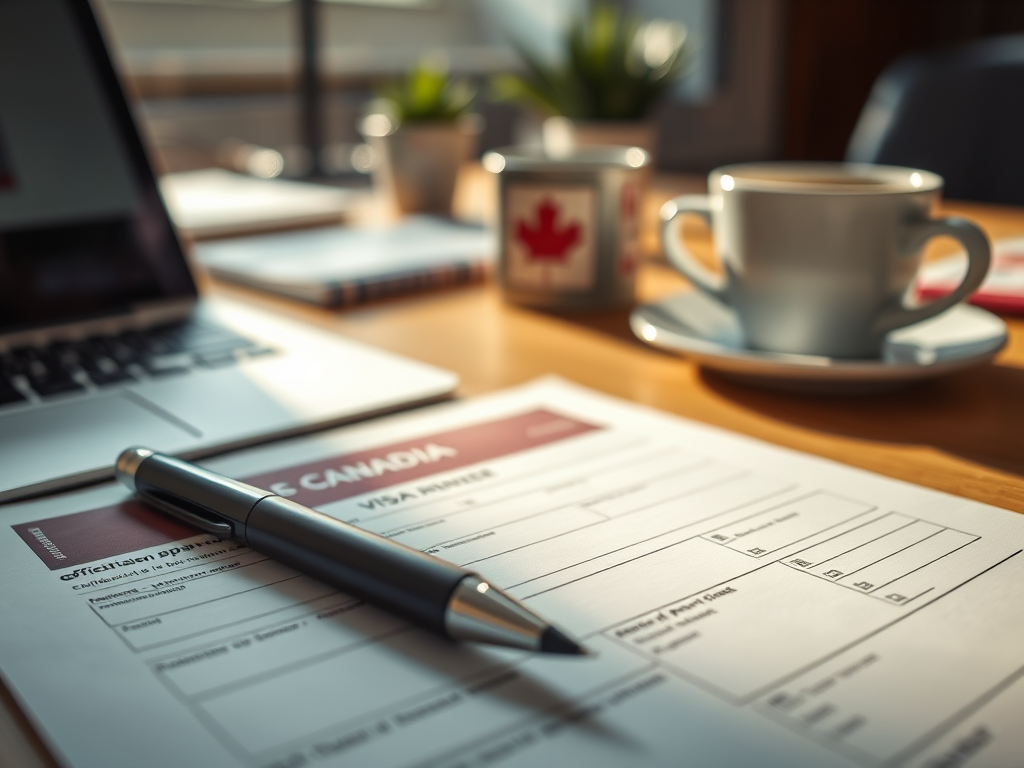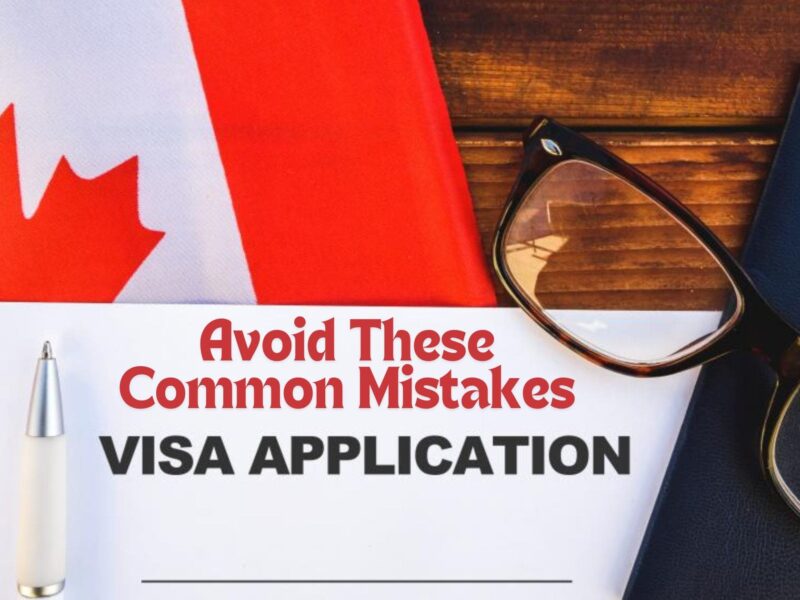Introduction
Canada is a dream destination for many people, whether for tourism, education, work, or permanent residency. However, one of the most critical steps in making that dream a reality is securing the proper visa. Navigating Canada’s visa requirements can be tricky, and even small mistakes can lead to delays or outright refusals. This article will walk you through common visa requirements and the mistakes you must avoid to ensure a smoother process.

Types of Canadian Visas
Canada offers various types of visas depending on your purpose of travel. Each comes with specific requirements, and knowing the right type of visa is the first step toward a successful application.
Visitor Visa
A visitor visa, or Temporary Resident Visa (TRV), allows people to enter Canada for tourism, visiting family or friends, or short business trips. Most countries require a visitor visa, but citizens from visa-exempt countries only need an Electronic Travel Authorization (eTA).
Who Needs a Visitor Visa?
If you are not from a visa-exempt country, you’ll need a visitor visa to enter Canada. This applies even if you’re only transiting through a Canadian airport.
Student Visa
Canada is known for its excellent educational institutions. If you’re planning to study in Canada for more than six months, you’ll need a student visa or study permit.
READ MORE: American University Emerging Global Leader Scholarship for Fall 2025
Requirements for a Student Visa
To obtain a student visa, you must first have an acceptance letter from a recognized Canadian educational institution. You’ll also need to demonstrate that you have sufficient funds to cover tuition fees, living expenses, and return transportation.
Work Visa
Canada also offers various work visas for those looking to take up employment. These visas range from temporary permits to pathways for permanent residency.
Types of Work Visas Available
There are several types of work visas, including employer-specific work permits, open work permits, and work permits under the International Mobility Program (IMP) or the Temporary Foreign Worker Program (TFWP).
General Requirements for a Canada Visa
Regardless of the type of visa you’re applying for, there are some general requirements that every applicant must meet.
Passport Validity
Your passport must be valid for the duration of your stay. Immigration officers often recommend having at least six months of passport validity to avoid complications.
Proof of Financial Support
You must provide evidence that you can support yourself (and any accompanying family members) while in Canada. Bank statements, pay stubs, or letters of financial support can serve as proof.
Travel History
A well-documented travel history, particularly if you’ve previously traveled to countries like the U.S. or the U.K., can improve your chances of approval.
Health and Security Clearances
Applicants may be required to undergo medical exams and provide police clearance certificates to show that they do not pose health or security risks to Canada.
Common Mistakes People Make
Small errors in your application can lead to significant delays or visa refusal. Let’s dive into some of the most common mistakes applicants make.
Submitting Incomplete or Incorrect Forms
One of the most frequent mistakes is submitting incomplete or incorrect forms. Always double-check that every section of the application has been filled out correctly and completely.
Not Providing Sufficient Proof of Funds
Failing to demonstrate that you have enough money to support yourself in Canada can result in immediate rejection. Make sure your financial documents are up-to-date and reflect your current situation.
READ MORE: Healthcare Assistant Positions in the UK with Visa Sponsorship for 2024/25
Overlooking Health Insurance
For certain visas, especially long-term stays like student visas, proof of health insurance is essential. Without it, your application may be rejected.
Ignoring Passport Expiry Date
Make sure your passport will be valid for the entirety of your stay in Canada. If your passport expires soon, renew it before applying for a visa.
Failing to Provide Accurate Travel History
Immigration officers scrutinize your travel history closely. Failing to provide an accurate and detailed account of your past travels can lead to rejection.
Visa Refusal Reasons
Even small oversights can lead to visa refusal. Here are some common reasons for rejection.
Misrepresentation of Facts
Lying or misrepresenting facts in your application can lead to an automatic refusal and could even prevent you from applying for a visa in the future.
Inability to Convince Immigration Officers
You must convince the visa officer that you will return to your home country after your visit, work, or studies. Failing to demonstrate ties to your home country can result in rejection.
Lack of Ties to Home Country
If you cannot show strong ties to your home country (such as family, job, or property), the visa officer may suspect you will overstay your visa.
Incomplete Documentation
Providing incomplete or outdated documents is another common reason for visa refusals. Always double-check the document checklist for your specific visa type.
How to Avoid Common Mistakes
Double-Check Your Application
Review your application carefully before submitting it. Make sure every detail is accurate and every document is attached.
Provide Clear and Complete Supporting Documents
Supporting documents must be legible, up-to-date, and relevant to your application. Ensure you include every document required to prove your case.
Plan Ahead for Health and Security Checks
If you need medical exams or police certificates, get these documents early, as processing times can vary by country.
What to Do if Your Visa is Refused
Understanding the Reason for Refusal
If your visa is refused, carefully review the reasons provided by the visa office. Understanding the cause of refusal will help you address it in your next application.
Reapplying with Corrected Mistakes
Once you know why your visa was refused, you can reapply with corrections. Make sure to provide additional documentation if necessary.
Seeking Professional Guidance
Consider consulting with an immigration consultant or lawyer if you’re unsure how to fix the mistakes in your application.
Conclusion
Applying for a Canadian visa can be a complex process, but avoiding common mistakes can significantly increase your chances of approval. Always double-check your forms, provide complete and accurate information, and plan ahead for all requirements. By doing so, you’ll be one step closer to making your Canadian dream a reality.
FAQs
What is the fastest way to get a Canadian visa?
Applying online and ensuring all your documents are complete and correct can help speed up the process.
How long does it take to process a Canadian visa application?
Processing times vary depending on the type of visa and the country you’re applying from, but it generally takes several weeks to a few months.
Can I reapply immediately after a visa refusal?
Yes, but it’s important to correct the issues that led to the refusal before reapplying.
How much money is needed for a Canadian visa?
The amount varies depending on the visa type, but you should generally have enough to cover your stay, including accommodation and living expenses.
Is health insurance mandatory for a Canadian visa?
For long-term visas like student visas, health insurance is usually mandatory.






